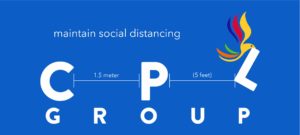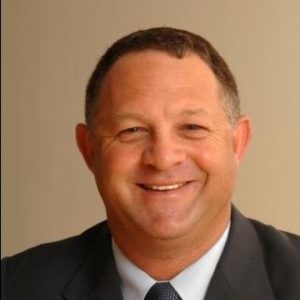The first in a series of Business Advantage PNG online business briefings tackled the issue of managing your business during the COVID-19 crisis. Mahesh Patel, CEO of CPL Group, and Wayne Osterberg, KPMG PNG’s Director Advisory Services, looked at the critical issues during Papua New Guinea’s state of emergency.
Papua New Guinea’s first confirmed case of COVID-19, and the resulting state of emergency (SOE), changed the landscape for business in the country. Trading was curbed, movements were restricted and supply chains disrupted.
For Mahesh Patel, CEO of PNG’s biggest retailer CPL Group (which includes retail chains City Pharmacy and Stop & Shop), it was all about staying flexible. He had to deal with staff training, staff fear over the virus and even had to break out his personal credit card to overcome the country’s forex issues.
‘We had some spikes in sales when the first announcements came through, but then all the gains were wiped out because we have a couple of thousand staff from all over Port Moresby, so we had to get buses organised to pick them up and drop them off,’ Mahesh said.
‘A crisis like this reminds us to get back to basics in business.’
The retailer also faced supply-chain disruptions but it was the smallholders who supplied its stores that were most affected by the initial disruption. Patel said he felt for them.
‘We are trying to be champions of local produce here and with the border closures … our farmers came up to the borders about four kilometres from the [Port Moresby] city centre and they said, “You can’t enter the city”,’ he said. ‘So, a lot of wastage happened for the farmers and this is their livelihood. I think they were the biggest impacted.’
Cashflow is king
Wayne Osterberg, KPMG PNG’s Director Advisory Services, says the SoE has highlighted for a lot of businesses the tight margins on which they are operating.
‘It has made businesses closely examine their cash flows and see where they can get cash and to examine supply chains,’ he said. ‘But, for all businesses, it is not knowing how long it is going to last. You can ordinarily do cash flow on what you expect sales to be and your normal trade but not many normal conditions are prevailing at the moment.’
Osterberg said business can manage cash flow by renegotiating with suppliers, getting better rental deals and trying to look at making savings, so that you can conserve what cash you do have.
‘A crisis like this reminds us to get back to basics in business,’ he said.
SMEs in particular are still feeling the pinch and Mahesh Patel said there is one way that government can help.
‘SMEs don’t want handouts,’ Patel said. ‘But one thing that we have supported is saying to the government, “Listen, there are so many unpaid bills; all you need to do is pay your bills”. We don’t want a handout – and that message still does not seem to be getting through.’
The road to recovery

Retailer CPL Group has playfully amended its corporate logo to incorporate a health message for COVID-19.
Mahesh Patel is looking to the potential end of the lockdown on 6 June. But he is very keen that his staff are aware that the threat of COVID-19 is still very real. He only recently had to send out a terse message to staff after noticing a breach in hygiene standards; he wants everyone to remain alert.
‘I go to dinner parties and people go to give you hugs,’ Patel said. ‘And I go: “Hey, hang on, it’s not over yet”. These are educated, senior-level Papua New Guineans and expats and I think the biggest message that needs to go out is that we can’t let our guards down.’
‘Commodity prices are obviously critical and the ability to get some projects over the line, that will help the economy bounce back fairly quickly.’
Patel has done forecasts for all the CPL Group businesses looking at the likely trends. He believes essential businesses will carry on and discretionary businesses will suffer. ‘We will have to make some cost adjustments there,’ he said.
Diversity a strength
In terms of the PNG economy, both Patel and Osterberg believe potential resources projects and food cash crops are what will make the difference for PNG in the region. Patel said Fiji, where CPL has business interests, is in a much worse state due to its over-reliance on tourism.
Osterberg agrees that PNG’s diversification is a strength and that a lot of its recovery will depend on its close relationship with Australia.
‘I think the economy will be fairly resilient,’ he said. ‘Commodity prices are obviously critical and the ability to get some projects over the line, that will help the economy bounce back fairly quickly.’ He added that PNG is lucky that it is insulated from a lot of the chaos overseas but still believes it will take some time to rebound.
‘You are asking the most optimistic person on earth [if the economy will recover],’ Patel said. ‘So I say: “Yes it will,” but the question is when?’









Speak Your Mind